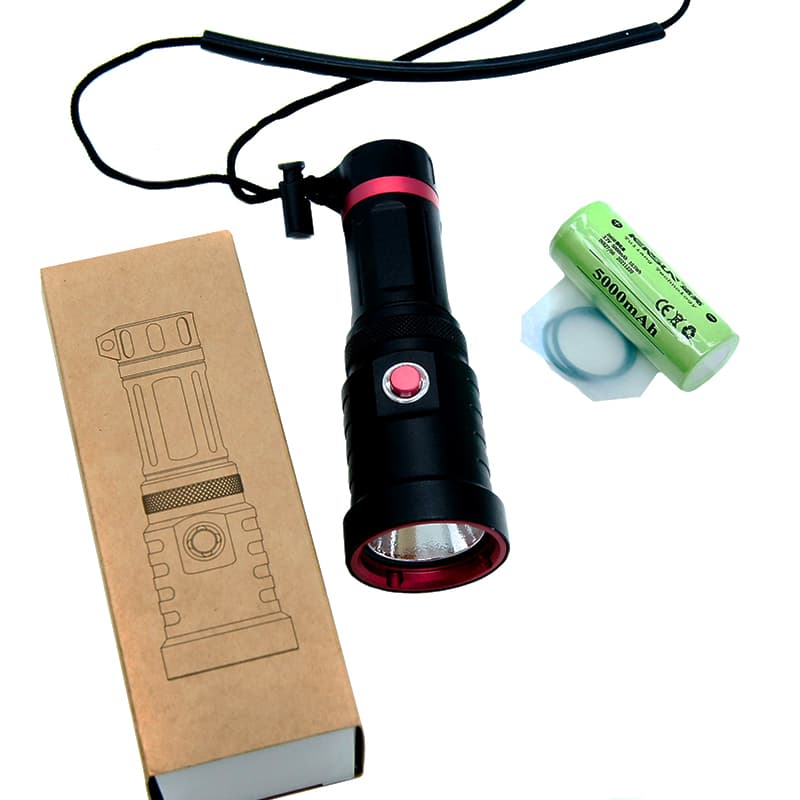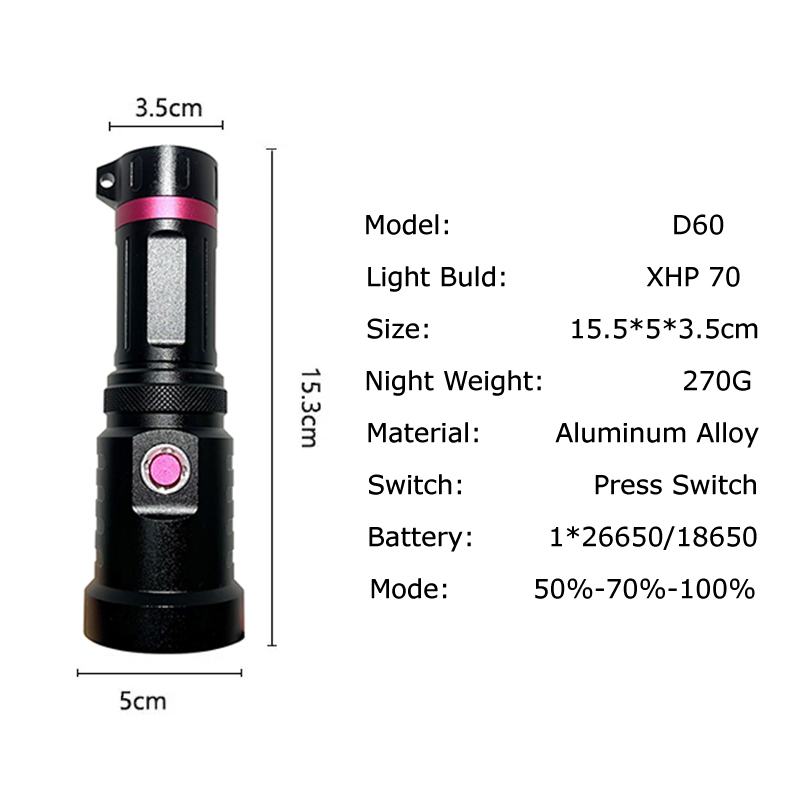Understanding Dive Lights
Dive lights are indispensable tools for scuba divers, providing essential illumination in the underwater environment. Choosing the appropriate dive light is crucial to ensure safety in different diving conditions. Additionally, proper maintenance and having backup dive lights are vital for a secure and enjoyable diving experience.
Expert Tip: "Selecting the right dive light can significantly enhance visibility and safety during underwater exploration."
Dive Light Varieties
When it comes to dive light varieties, scuba divers have several options to choose from, each serving specific purposes in different underwater settings. Understanding the primary dive light options and the importance of backup dive lights is essential for a safe and successful diving experience.
Primary Dive Light Options
Handheld dive lights offer portability and ease of use, making them ideal for recreational diving and general underwater exploration.
Canister dive lights are known for their long-lasting battery life and powerful illumination, making them suitable for deep dives or prolonged underwater activities.
Pistol grip models provide a balanced grip for divers, offering comfort and stability during dives in various conditions.
Backup Dive Lights
In the event of a primary light failure, backup dive lights serve as crucial safety measures, ensuring that divers have reliable illumination at all times.
Compact and reliable backup lights are recommended for all scuba divers, providing peace of mind in case of unexpected situations during dives.
Selecting the Right Dive Light
When it comes to selecting the right dive light, there are several important factors to consider to ensure optimal performance and safety during underwater exploration.
Factors to Consider
Brightness: The brightness of a dive light is a critical factor, especially in low visibility conditions. Look for a light that offers sufficient lumens to illuminate the underwater environment effectively.
Beam Angle: Consider the beam angle of the dive light, as it determines the spread of illumination. A wider beam angle is beneficial for general visibility, while a narrower beam may be more suitable for focused lighting in specific areas.
Battery Life: The battery life of the dive light is essential, particularly for deep-sea diving or prolonged underwater activities. Choose a light with a long-lasting battery to ensure it lasts throughout your dive.
Type of Diving: Different types of diving, such as night diving or cave diving, may require specific features in a dive light. Ensure that the light you choose aligns with the type of diving you plan to undertake.
Water Conditions: Consider the water conditions where you will be diving. For example, if you frequently dive in murky waters, a brighter and wider beam angle may be necessary for improved visibility.
Matching Dive Lights to Diving Conditions
When selecting a dive light, it's crucial to match its features to the specific diving conditions you anticipate encountering.
Adjustable settings and versatile beam patterns are important for adapting to various underwater environments. Whether it's exploring dark caverns or navigating through open waters at night, having a dive light that can cater to different conditions enhances safety and overall visibility during subaquatic diving experiences.
By carefully considering these factors and matching your dive lights to your intended diving conditions, you can ensure that you have the right equipment for an enjoyable and safe scuba diving adventure.
Dive Light Maintenance
Cleaning and Storage
When it comes to maintaining your diving light, regular cleaning is essential to ensure optimal performance. After each dive, make sure to clean the dive light thoroughly to remove any saltwater and debris that may have accumulated. This not only helps in preserving the functionality of the light but also prevents any potential damage caused by corrosion.
In addition to cleaning, proper storage of your diving light is crucial. Store the light in a cool, dry place away from direct sunlight. This helps in prolonging the lifespan of the diving light and ensures that it remains in top condition for your next underwater adventure.
Battery Care and Replacement
Taking care of the batteries in your diving light is vital for uninterrupted illumination during dives. Always follow the manufacturer's guidelines for battery care, including charging and discharging procedures. Additionally, it's important to replace old batteries as needed to maintain consistent performance.
To avoid unexpected power loss during dives, carry spare batteries with you. Performing routine checks on the batteries before each dive ensures that you are well-prepared with fully functional power sources for your diving light.
Dive Light Safety Measures
Underwater Navigation
When venturing into the depths of the underwater world, proper navigation is essential for a safe and successful dive. Utilizing dive lights for underwater navigation not only enhances visibility but also serves as a crucial means of signaling to other divers, especially in low visibility conditions.
Expert Tip: "Effective use of dive lights for underwater navigation requires training and practice to ensure clear communication and coordination with dive buddies."
Underwater light signals can convey important messages such as indicating direction, identifying potential hazards, or simply staying in visual contact with fellow divers. By mastering the art of using dive lights for navigation, divers can enhance their overall safety and communication while exploring the mesmerizing underwater landscapes.
Emergency Protocols
Establishing clear emergency procedures and signals related to dive light usage is paramount for ensuring preparedness during dives. Dive buddies should communicate and agree upon specific signals using their dive lights to indicate distress, need for assistance, or changes in the planned course of action.
Remember: "Carrying backup dive lights is a fundamental safety measure that all divers should adhere to. Being equipped with reliable backup illumination ensures readiness for unexpected situations during dives."
Incorporating these emergency protocols not only fosters a sense of security but also promotes effective teamwork among diving partners. Additionally, regular practice of emergency scenarios reinforces the importance of quick and coordinated responses when faced with challenging circumstances beneath the waves.
Enhancing Diving Experiences with Dive Lights
Dive lights, also referred to as underwater lights or diving torches, play a pivotal role in enhancing the overall scuba diving experience. By carefully selecting the right dive light and diligently practicing maintenance routines, divers can ensure a safe and enjoyable adventure beneath the waves. Understanding the diverse varieties of dive lights and their specific applications contributes significantly to improved visibility and safety during underwater exploration.
Incorporating essential dive light safety measures, such as proper battery care, emergency protocols, and utilizing backup dive lights, enhances preparedness for enthusiasts and promotes a sense of security during dives.
Remember: "Selecting the appropriate dive light is not just about illumination; it's about ensuring a memorable and secure underwater journey."
By embracing these principles, scuba diving enthusiasts can elevate their experiences by harnessing the power of reliable and effective dive lights.

